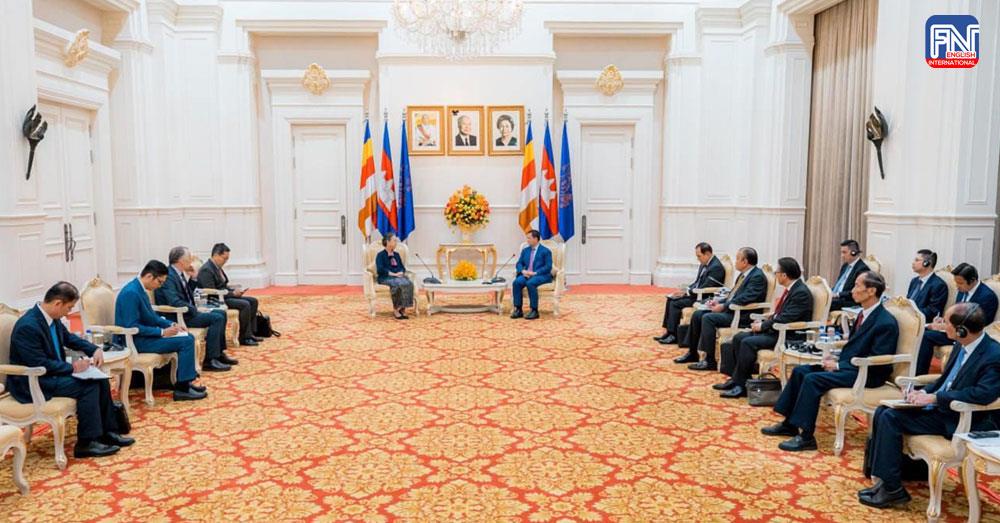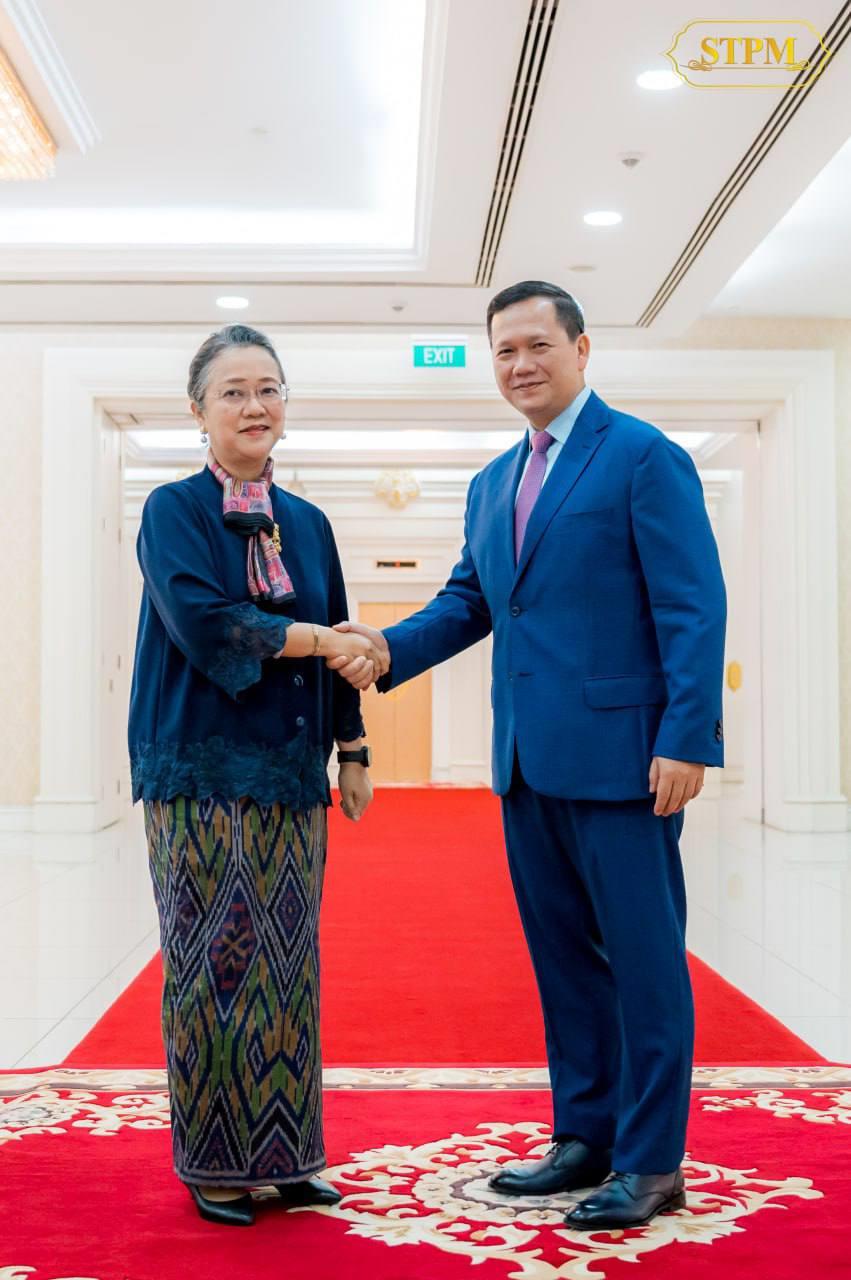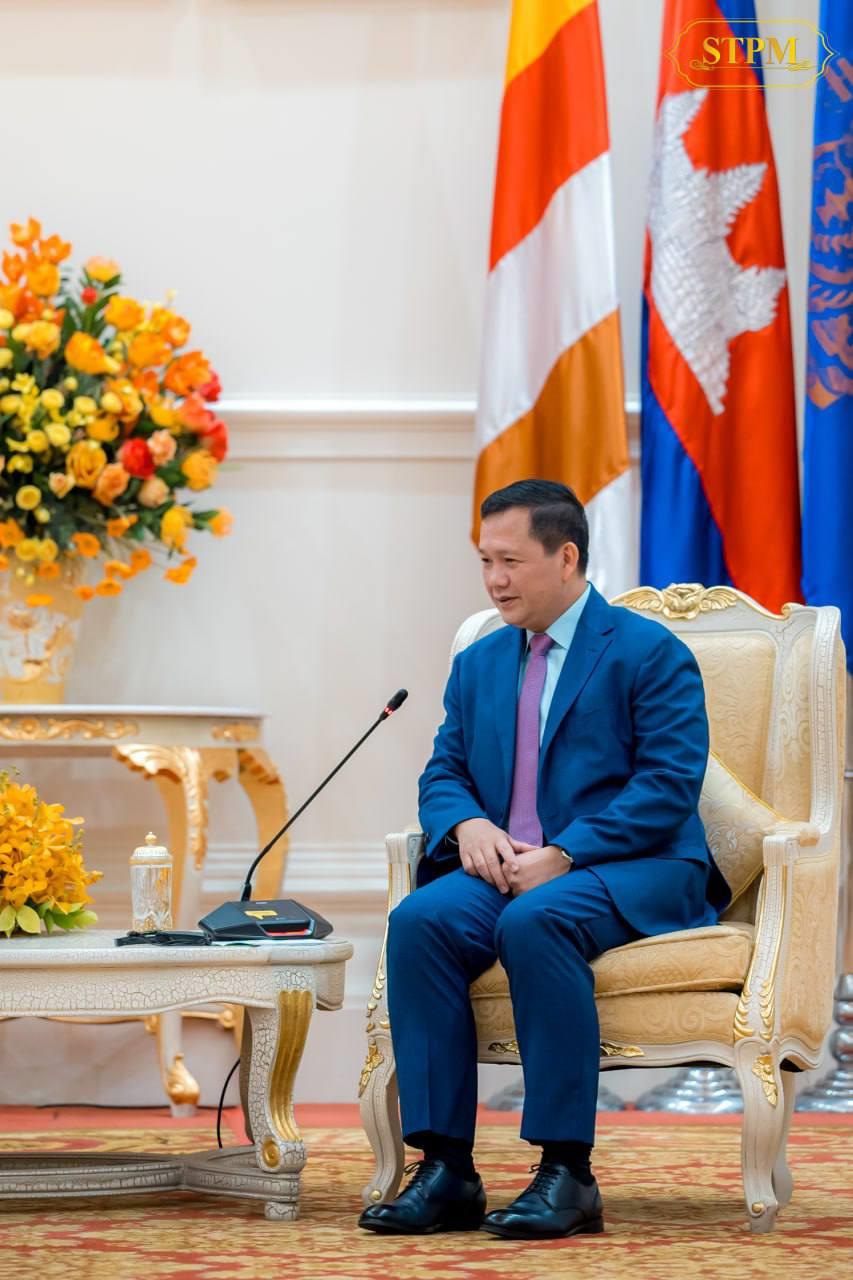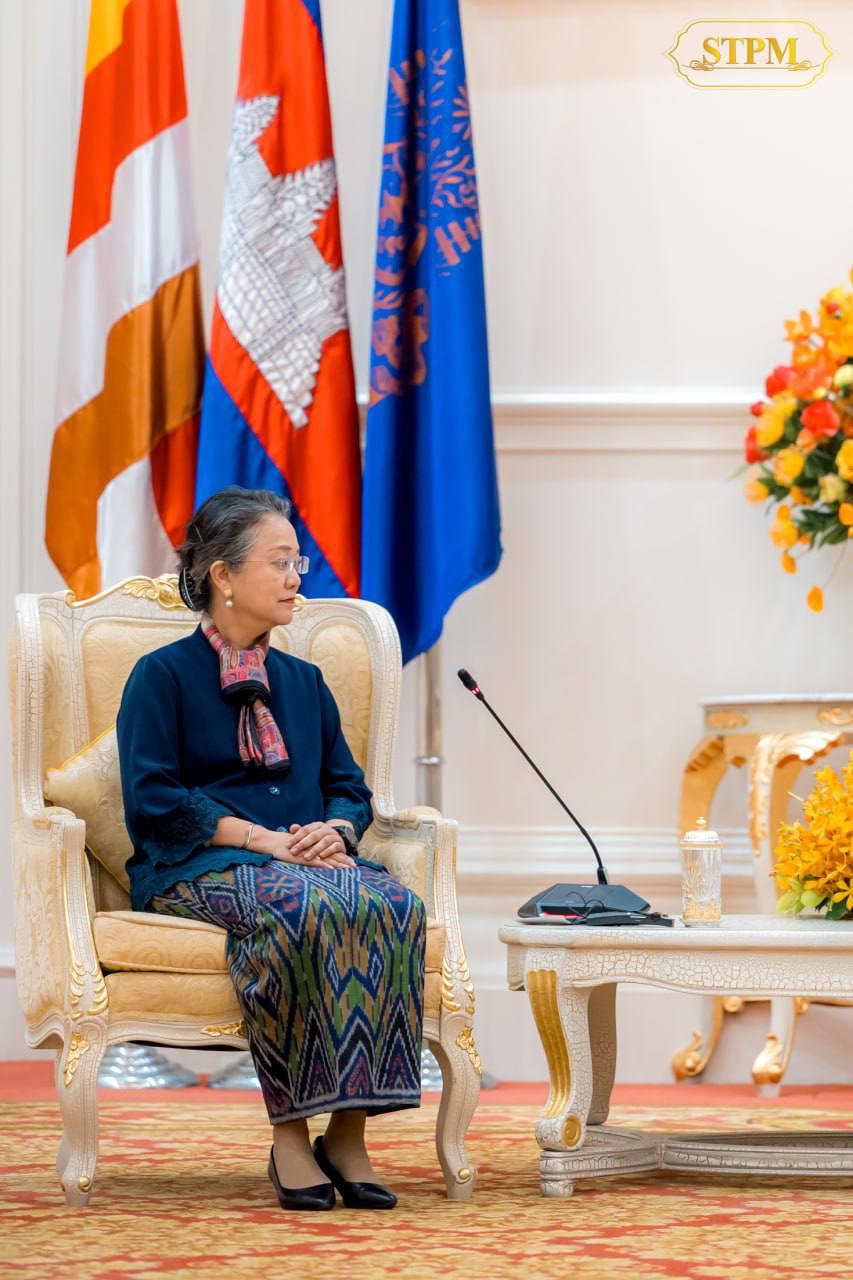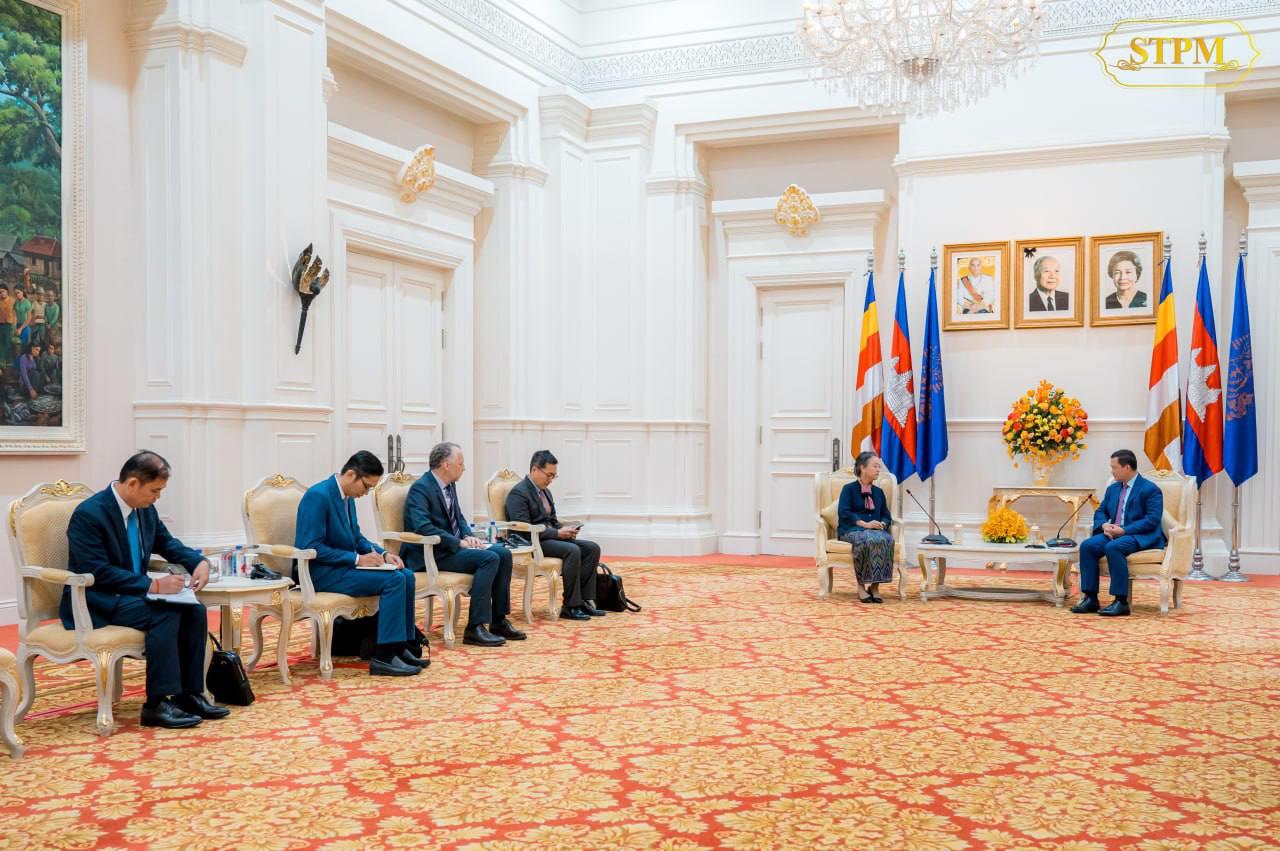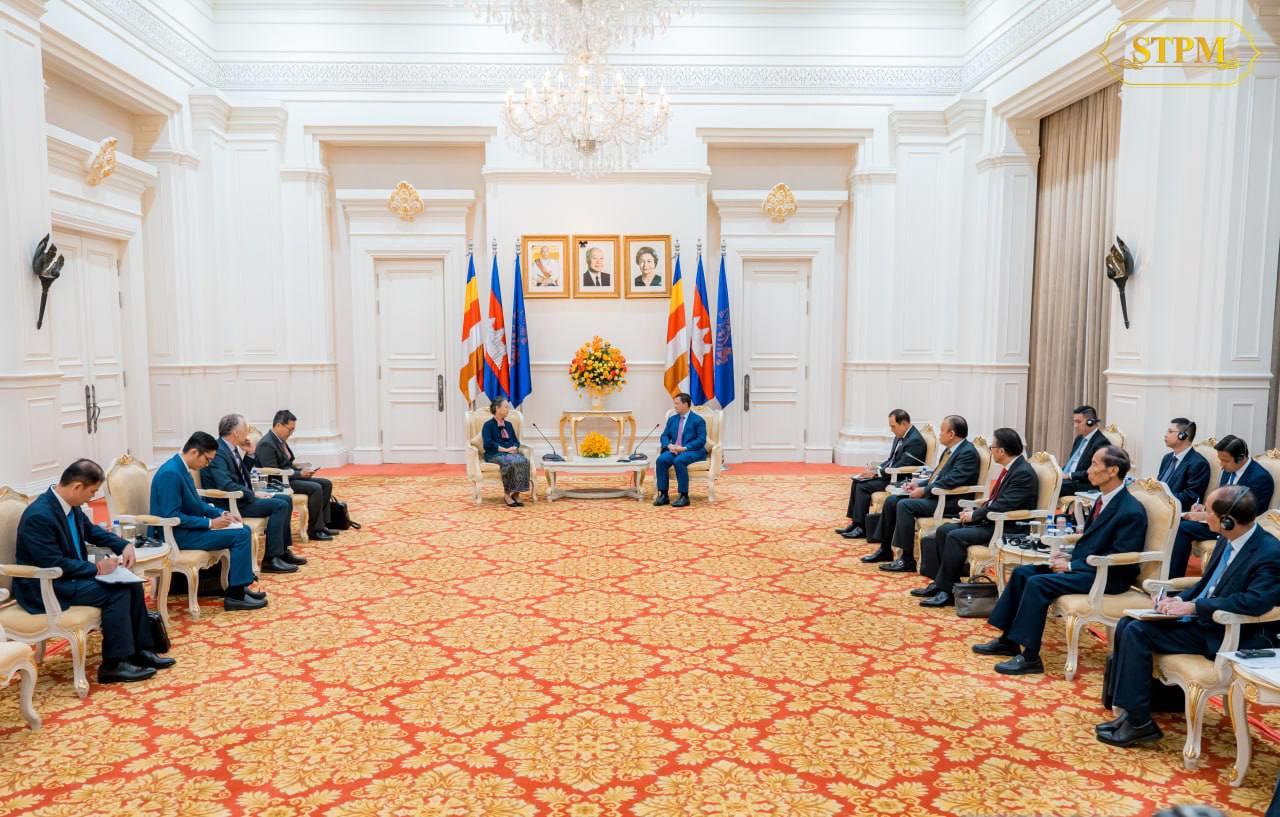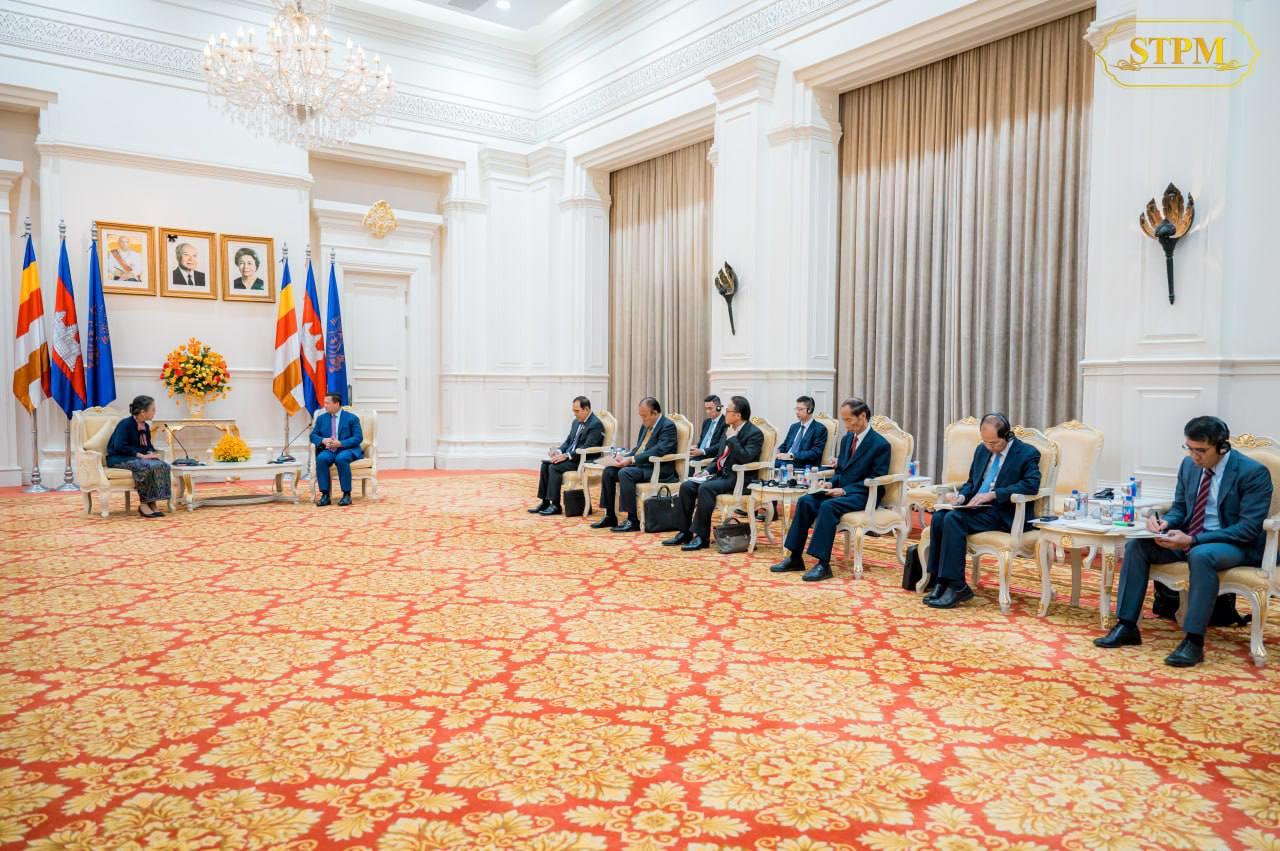Phnom Penh (FN), Jan. 22 – Cambodia and UN-ESCAP are committed to enhancing their collaboration for socio-economic development and improving the well-being of the people.
Cambodian Prime Minister Hun Manet received a courtesy call by Executive Secretary of the United Nations Economic and Social Commission for Asia and Pacific (UN-ESCAP) Armida Salsiah Alisjahbana on Monday (Jan. 22) at the Peace Palace.
Armida Salsiah Alisjahbana expressed her sincere gratitude to Samdech Thipadei for taking the time to allow her and her delegation to pay a courtesy call and discuss their work. She also expressed appreciation to the Royal Government of Cambodia for its excellent cooperation with UN-ESCAP. During the meeting, she briefly outlined four priority areas for continued cooperation as follows:
1. Providing protection to the people based on the principle of "not leaving someone behind" and environmental protection with a focus on climate change.
2. Facilitating the promotion of investment and trade by enhancing trade connectivity among UN-ESCAP member countries.
3. Building and strengthening digital capacity for the people.
4. Providing financial support to contribute to the achievement of the Sustainable Development Goals (SDGs).
In response, Samdech Thipadei Hun Manet welcomed Armida Salsiah Alisjahbana and her delegation to visit Cambodia again. He expressed his pleasure and gratitude to UN-ESCAP for its contributions to socio-economic development in Cambodia in the past.
Samdech Thipadei commended and thanked UN-ESCAP for its commitment to continuing cooperation with the Royal Government of Cambodia. During the meeting, he also informed Armida Salsiah Alisjahbana that the mentioned priorities align with the policy framework and strategic framework of the seventh-mandate Royal Government. Samdech Thipadei underlined the introduction of the Pentagon Strategy-Phase I, which prioritizes improving people's livelihoods through building resilience and sustainable growth, aiming to achieve Cambodia's vision of becoming a high-income country in 2050.
=FRESH NEWS
